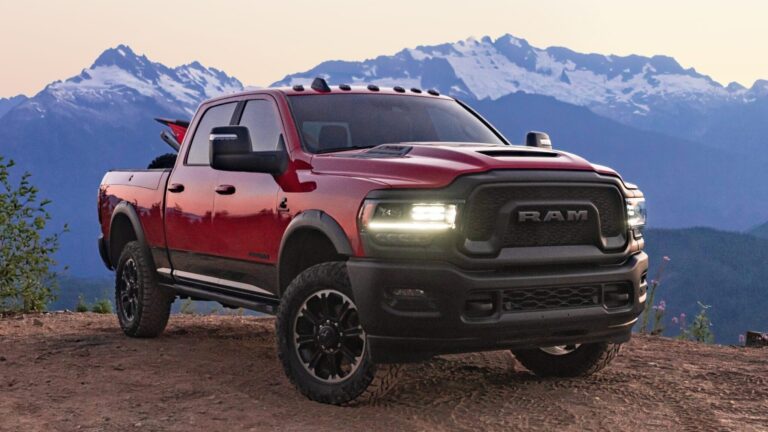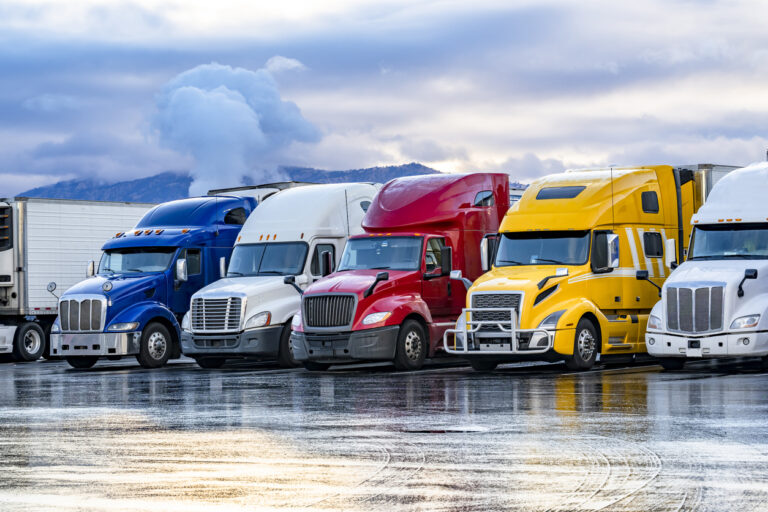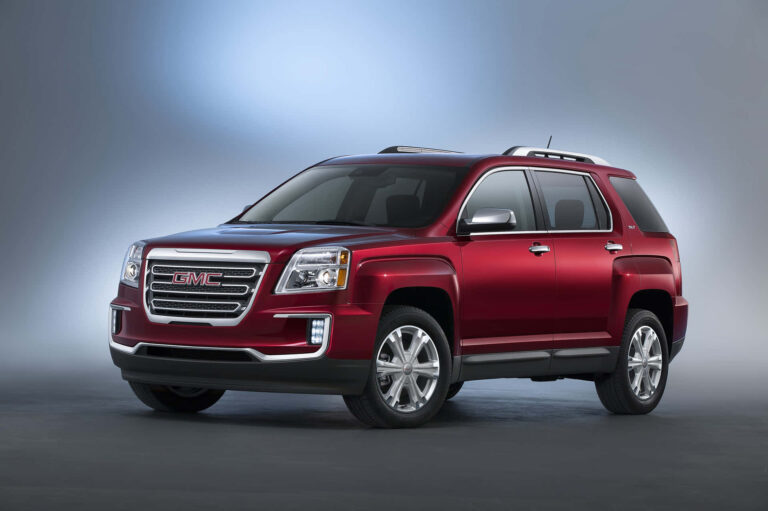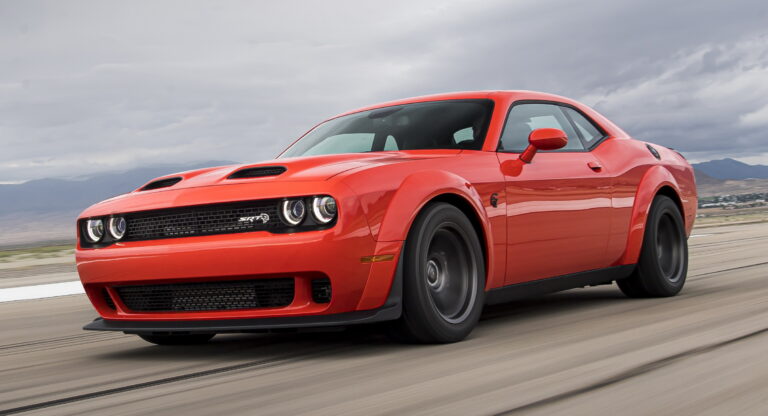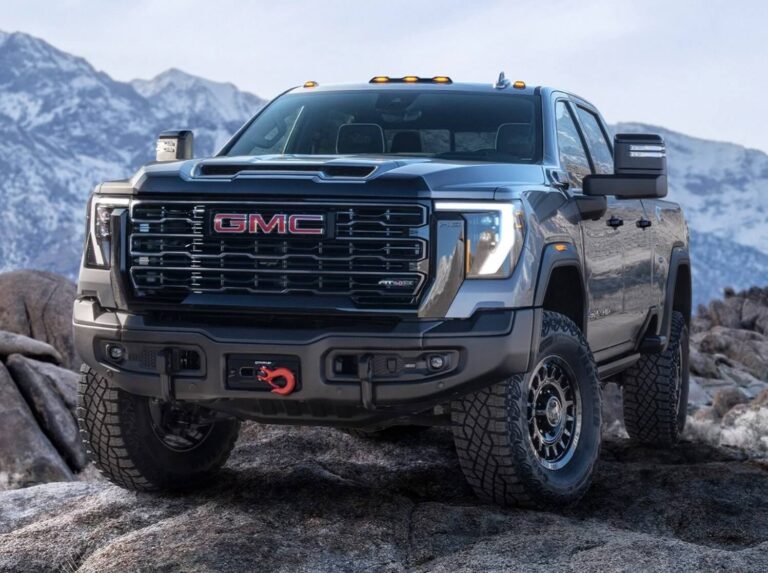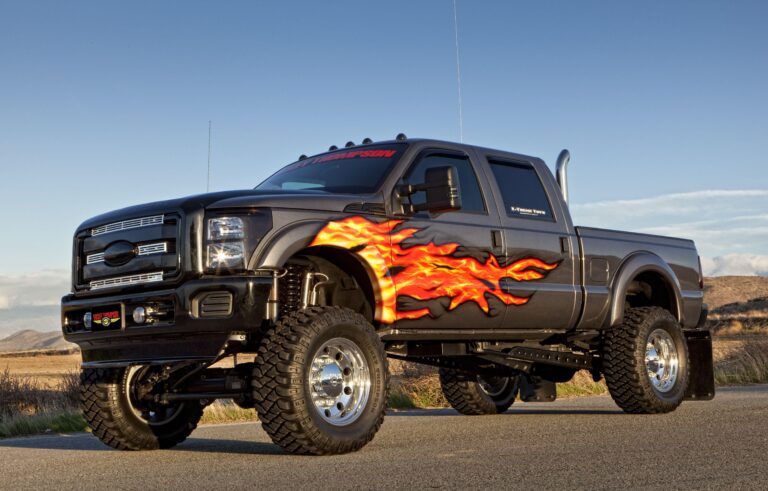Old Chevy Farm Trucks For Sale: A Comprehensive Guide to Finding Your Next Classic Workhorse
Old Chevy Farm Trucks For Sale: A Comprehensive Guide to Finding Your Next Classic Workhorse cars.truckstrend.com
Introduction: The Enduring Legacy of the Old Chevy Farm Truck
In the world of classic vehicles, few types evoke as much nostalgia, rugged charm, and practical utility as the old Chevy farm truck. These aren’t just mere machines; they are tangible pieces of American history, weathered testaments to hard work, resilience, and simpler times. From hauling hay and livestock to serving as the trusty family workhorse, these Chevrolet pickups have shaped rural landscapes and agricultural enterprises for decades. Today, the demand for "Old Chevy Farm Trucks For Sale" isn’t just about utility; it’s about acquiring a slice of automotive heritage, embarking on a rewarding restoration project, or simply owning a vehicle with unparalleled character and a story to tell.
Old Chevy Farm Trucks For Sale: A Comprehensive Guide to Finding Your Next Classic Workhorse
This comprehensive guide delves into everything you need to know about finding, evaluating, and appreciating these iconic vehicles. Whether you’re a seasoned collector, a first-time restorer, or simply someone looking for a dependable and stylish vintage ride, understanding the nuances of the old Chevy farm truck market is key to making an informed and satisfying purchase. We’ll explore their enduring appeal, identify key models, guide you through the buying process, discuss crucial considerations, and provide practical advice to help you navigate the exciting journey of owning one of these legendary American workhorses.
The Enduring Appeal of Vintage Chevy Farm Trucks
The allure of an old Chevy farm truck extends far beyond its functional capabilities. It’s a blend of robust engineering, timeless design, and a connection to a bygone era.
- Classic Aesthetics: Chevrolet trucks from the 1940s through the 1980s boast distinctive styling cues that set them apart. From the curvaceous fenders of the Advance Design era to the clean lines of the "Action Line" C/K series and the utilitarian charm of the "Square Body," each generation possesses a unique visual identity that resonates with enthusiasts. Their unpretentious, purposeful design speaks volumes about their original intent: to work.
- Robust and Simple Mechanics: Unlike modern vehicles laden with complex electronics, older Chevy trucks feature straightforward mechanical systems. This simplicity translates into easier diagnosis, more accessible repairs, and a greater potential for DIY maintenance. Their durable inline-six and V8 engines (like the ubiquitous small-block Chevy) are known for their longevity and reliability, capable of enduring countless miles with proper care.
- Versatility Beyond the Farm: While their moniker suggests agricultural use, these trucks are incredibly versatile. Many are restored to pristine show quality, others are modified into powerful hot rods, while a significant number continue to serve as dependable daily drivers or weekend utility vehicles. Their spacious beds and sturdy frames make them ideal for hauling, towing, and various practical tasks, bridging the gap between classic collectible and functional asset.
- A Connection to Heritage: For many, owning an old Chevy farm truck is a way to connect with personal or family history. They often represent memories of grandfathers, farm life, or a simpler time when vehicles were built to last. This emotional connection adds significant value beyond mere monetary worth.
- Investment Potential: While not all old trucks appreciate dramatically, well-maintained or expertly restored models, especially rarer variants or highly sought-after generations, can prove to be solid investments. Their increasing popularity ensures a steady market for both parts and complete vehicles.

Key Models and Generations to Look For
Chevrolet produced a staggering variety of trucks over the decades, each with its own characteristics. When looking for Old Chevy Farm Trucks For Sale, understanding the popular generations can help narrow your search.
- Pre-War & Early Post-War (1930s-1946): These trucks, often characterized by their tall, narrow grilles and separate fenders, are rarer and typically require extensive restoration. They represent the foundational years of Chevrolet truck design and are prized by serious collectors. Examples include the DP, Master, and AK series.
- Advance Design (1947-1955): Instantly recognizable by their rounded cabs, integrated fenders, and five-bar grilles, the Advance Design trucks are among the most iconic and beloved. Models like the 3100 (half-ton) are highly sought after for hot-rodding and classic restorations due to their timeless appeal and relatively good parts availability.
- Task Force (1955-1959): Marking a significant design shift, the Task Force trucks introduced more modern styling, including panoramic windshields and optional V8 engines. The "Cameo Carrier" (1955-58) with its smooth-sided bed was a revolutionary design. These trucks offer a blend of classic looks with improved performance options.
- C/K Series – First Generation (1960-1966): These trucks featured a unique "eyebrow" hood design and introduced independent front suspension, offering a smoother ride. They are a popular choice for those seeking a distinct look and improved drivability over earlier models.
- C/K Series – "Action Line" (1967-1972): Arguably the most popular and iconic generation, the "Action Line" trucks are celebrated for their clean, crisp lines, excellent proportions, and vast aftermarket support. Models like the C10 (2WD) and K10 (4WD) are highly desirable for both restoration and customization.
- C/K Series – "Square Body" (1973-1987): The "Square Body" trucks, with their utilitarian and robust design, were built in massive numbers and are increasingly gaining collector status. They offer excellent value, parts availability, and a straightforward platform for customization or dependable daily use. Their durability makes them quintessential farm trucks.
Where to Find Your Next Old Chevy Farm Truck
The hunt for the perfect old Chevy farm truck can be an adventure in itself. Here are the best places to look:
- Online Marketplaces: Websites like Craigslist, Facebook Marketplace, eBay Motors, and specialized classic car/truck classifieds (e.g., Hemmings, ClassicCars.com) are primary hunting grounds. Use specific keywords like "Chevy C10," "K20 farm truck," "Square Body pickup," or "vintage Chevrolet."
- Specialized Forums and Clubs: Online forums dedicated to specific Chevy truck generations (e.g., 67-72chevytrucks.com, Squarebody.com) often have "for sale" sections. Local classic car and truck clubs are also excellent resources for leads and word-of-mouth recommendations.
- Auctions: Major classic car auctions (Barrett-Jackson, Mecum) will feature high-end, restored examples, while local farm or estate auctions might uncover hidden gems or genuine "barn finds."
- Local Classifieds and Word-of-Mouth: Don’t underestimate the power of local newspapers, bulletin boards in rural areas, and simply asking around at car shows, swap meets, or even local mechanics’ shops. Many true farm trucks are sold privately within communities.
- Salvage Yards/Junkyards: While unlikely to find a running truck, these can be goldmines for specific parts, especially for rarer models.
- Farm Sales and Estate Liquidations: Keep an eye out for these events, particularly in agricultural regions. Trucks that have genuinely served as farm vehicles often come up for sale as families downsize or estates are settled.
What to Consider Before Buying: The Essential Inspection Guide
Before you hand over your hard-earned cash, a thorough inspection is paramount. Old farm trucks, by their nature, have often led hard lives.
Condition Categories:
- Parts Truck/Donor: Often non-running, heavily rusted, missing components. Useful only for salvaging specific parts. Lowest price point.
- Project Truck: Requires significant mechanical, body, and interior work to be roadworthy. A blank canvas for restoration, but prepare for substantial investment in time and money.
- Driver Quality: Runs and drives, has current registration, but likely has cosmetic flaws, minor mechanical issues, or needs general refreshing. Usable as-is, but not show-ready.
- Restored/Show Quality: Near-perfect condition, often with rebuilt engines, fresh paint, and pristine interiors. Commands the highest prices.
Key Inspection Points:
- Rust: This is the biggest enemy. Check thoroughly:
- Frame: Critical for structural integrity. Look for cracks, heavy scaling, or previous patch jobs.
- Cab: Cab corners, rocker panels, floor pans, firewall, and around the windshield/rear window.
- Bed: Floor, wheel wells, and bed sides.
- Fenders and Doors: Bottom edges, wheel arches.
- Engine and Drivetrain:
- Cold Start: Listen for strange noises (knocking, ticking, excessive smoke).
- Leaks: Oil, coolant, transmission fluid.
- Transmission: Check fluid, shift quality (manual and automatic).
- Differential: Listen for hums or clunks.
- General Condition: Belts, hoses, wiring, battery.
- Brakes, Suspension, and Steering:
- Brakes: Pedal feel, stopping power, pulling. Check for leaks at wheels.
- Suspension: Worn shocks, leaf springs, bushings.
- Steering: Excessive play in the wheel, pulling.
- Electrical System:
- Test all lights (headlights, tail lights, turn signals, brake lights).
- Check gauges, wipers, heater, radio (if applicable).
- Look for frayed or spliced wiring.
- Interior:
- Seat condition (tears, springs).
- Dashboard cracks, gauge functionality.
- Door panels, headliner.
- Glass condition (cracks, seals).
- Documentation:
- Absolutely essential. Ensure it’s clean and matches the VIN.
- VIN Plate: Verify it’s present and untampered with.
- Service Records: Any history of maintenance or repairs is a bonus.
Practical Advice: Always bring a knowledgeable friend or, better yet, a mechanic who specializes in older vehicles. A pre-purchase inspection by a professional can save you thousands down the line.
Budgeting for Your Old Chevy Farm Truck
Beyond the initial purchase price, owning an old Chevy truck involves ongoing costs.
- Purchase Price: This varies wildly based on condition, rarity, model, and location. A rusted project truck might be a few hundred dollars, while a perfectly restored C10 could fetch $50,000+.
- Restoration/Repair Costs: If you buy a project, budget for:
- Bodywork & Paint: Often the most expensive component, easily $5,000 – $20,000+.
- Engine/Transmission Rebuild: $2,000 – $10,000+.
- Suspension/Brakes: Upgrades to modern standards (disc brakes) can add $1,000 – $3,000.
- Interior: $500 – $3,000+.
- Parts: Reproduction panels, trim, mechanical components.
- Maintenance: Older vehicles require more frequent checks. Factor in fluids, filters, spark plugs, and occasional wear-and-tear parts.
- Insurance & Registration: Classic car insurance is often more affordable than standard policies, but requirements vary.
- Tools & Equipment: If you plan to do your own work, invest in a good set of tools, jack stands, and a service manual.
Actionable Insight: Be realistic about your budget and skill level. It’s often cheaper in the long run to buy a truck in slightly better condition than to try and save a truly dilapidated one, unless you have significant DIY skills and a lot of free time.
Tips for Restoration and Maintenance
Embarking on a restoration project is a journey of passion and perseverance.
- Start Small, Prioritize Safety: Address critical safety items first: brakes, steering, tires, and basic lighting. Get the truck roadworthy before focusing on cosmetics.
- Join Communities: Online forums, Facebook groups, and local classic car clubs are invaluable resources for advice, troubleshooting, and finding parts.
- Invest in a Shop Manual: A factory service manual for your specific truck year is essential. It contains wiring diagrams, torque specs, and detailed repair procedures.
- Parts Availability: For popular models like the Advance Design and C/K series, reproduction parts are abundant. Companies like LMC Truck, Classic Industries, and NPD offer catalogs full of new components. For rarer models, finding New Old Stock (NOS) or good used parts might require more searching.
- DIY vs. Professional: Decide what you can tackle yourself and what requires professional expertise. Bodywork, painting, and complex engine rebuilds are often best left to specialists if you lack experience.
- Embrace the Patina: Not every old farm truck needs a full, glossy paint job. Many owners choose to preserve the truck’s original "patina" (worn paint, surface rust) and focus on mechanical soundness. This preserves its character and can save a lot of money.
Challenges and Solutions
Owning an old Chevy farm truck comes with its unique set of challenges.
- Rust: As mentioned, rust is common. Solutions include:
- Prevention: Keeping the truck dry, regular cleaning, applying rust inhibitors.
- Repair Panels: Many aftermarket companies offer replacement cab corners, floor pans, fenders, and bed sections.
- Rust Converters: For surface rust, these can stabilize the metal.
- Parts Scarcity (for older/rarer models):
- Networking: Connect with other enthusiasts who might have spare parts or know where to find them.
- Specialized Suppliers: Seek out businesses that focus solely on vintage Chevy truck parts.
- Fabrication: For truly unique pieces, finding a skilled fabricator might be necessary.
- Mechanical Issues: While simpler, older components can fail.
- Proactive Maintenance: Regular fluid changes, inspections, and addressing small issues before they become big ones.
- Upgrades: Consider modern upgrades for reliability and safety, such as electronic ignition, disc brakes, power steering, or even engine swaps for more power and efficiency.
- Lack of Modern Safety Features: Old trucks lack airbags, ABS, and crumple zones.
- Solutions: Install three-point seatbelts, upgrade to disc brakes, ensure all lights are bright and functional, and drive defensively.
- The "Money Pit" Syndrome: Restorations can easily go over budget.
- Solution: Create a detailed plan, set a realistic budget, and stick to it. Prioritize necessary repairs over cosmetic enhancements if funds are limited. Break the project into manageable phases.
Price Table: Old Chevy Farm Trucks For Sale (Estimated Ranges)
Please note: These are estimated price ranges in USD and can vary significantly based on location, specific model/engine/transmission, originality, historical significance, and current market demand. Prices are subject to change.
| Model/Generation | Year Range | Condition: Parts/Project Truck (Non-Running/Heavy Rust) | Condition: Driver Quality (Running/Roadworthy/Minor Flaws) | Condition: Restored/Show Quality (Excellent/Pristine) |
|---|---|---|---|---|
| Pre-War (e.g., AK Series) | 1937-1946 | $1,000 – $5,000 | $8,000 – $25,000 | $40,000 – $100,000+ |
| Advance Design | 1947-1955 | $1,500 – $7,000 | $10,000 – $30,000 | $35,000 – $90,000+ |
| Task Force | 1955-1959 | $1,000 – $6,000 | $8,000 – $28,000 | $30,000 – $80,000+ |
| C/K Series (1st Gen) | 1960-1966 | $800 – $5,000 | $7,000 – $25,000 | $25,000 – $70,000+ |
| C/K Series ("Action Line") | 1967-1972 | $1,500 – $8,000 | $12,000 – $40,000 | $40,000 – $120,000+ |
| C/K Series ("Square Body") | 1973-1987 | $500 – $4,000 | $5,000 – $20,000 | $20,000 – $60,000+ |
Frequently Asked Questions (FAQ) About Old Chevy Farm Trucks For Sale
Q: Are old Chevy farm trucks reliable for daily driving?
A: With proper maintenance and potentially some modern upgrades (like electronic ignition or disc brakes), many old Chevy trucks can be reliable daily drivers. However, they won’t offer the same comfort, fuel economy, or modern safety features as contemporary vehicles.
Q: How much does it cost to insure an old Chevy farm truck?
A: Often, classic car insurance policies are more affordable than standard auto insurance, as they recognize the vehicle’s limited use and collector status. Rates depend on the truck’s value, your driving record, and the insurer.
Q: Where can I find parts for my old Chevy truck?
A: For popular models (1947-1987), many reproduction parts are available from specialized suppliers like LMC Truck, Classic Industries, and National Parts Depot (NPD). Used parts can be sourced from junkyards, online forums, and swap meets.
Q: What’s the difference between a "C" and a "K" series truck?
A: In Chevrolet’s C/K designation, "C" stands for two-wheel drive (2WD), and "K" stands for four-wheel drive (4WD). So, a C10 is a 2WD half-ton truck, while a K10 is a 4WD half-ton.
Q: Is a VIN check important for an old truck?
A: Absolutely. A VIN (Vehicle Identification Number) check can verify the truck’s authenticity, reveal if it’s been reported stolen, or if it has a salvage title. Ensure the VIN on the title matches the one on the truck.
Q: Should I restore it to original condition or customize it?
A: This depends on your goals and budget. Restoring to original condition can be more expensive but might increase collector value. Customization (restomod, hot rod, daily driver conversion) allows for personal expression and modern conveniences but might appeal to a different buyer pool. Many choose a middle ground, ensuring mechanical reliability while preserving or enhancing the truck’s classic look.
Conclusion: More Than Just a Truck
The journey of acquiring and owning an old Chevy farm truck is far more than a simple transaction; it’s an immersive experience into automotive history, mechanical craftsmanship, and a vibrant community of enthusiasts. Whether you envision a meticulous, concourse-level restoration, a rugged and reliable workhorse for your own property, or a stylish daily driver that turns heads, these trucks offer unparalleled character and a tangible connection to America’s past.
From the hunt for the perfect "Old Chevy Farm Trucks For Sale" to the satisfying rumble of its classic engine, every step of the process is rewarding. While challenges like rust and parts sourcing can arise, the sheer satisfaction of bringing one of these venerable machines back to life, or simply driving a piece of history, far outweighs the effort. In the end, an old Chevy farm truck isn’t just a vehicle; it’s a statement, a passion, and a testament to enduring American ingenuity.
